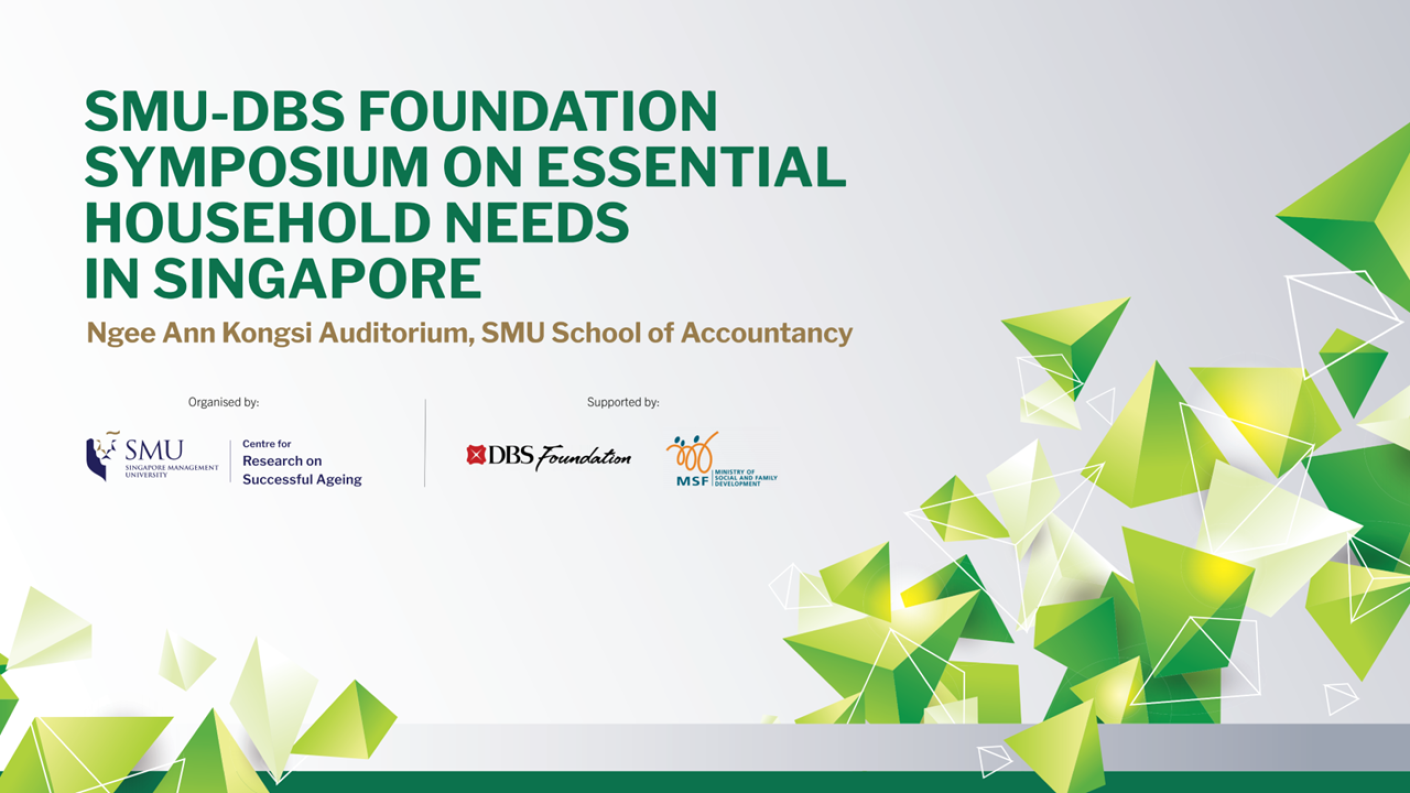
SMU-DBS Foundation Symposium on Essential Household Needs in Singapore
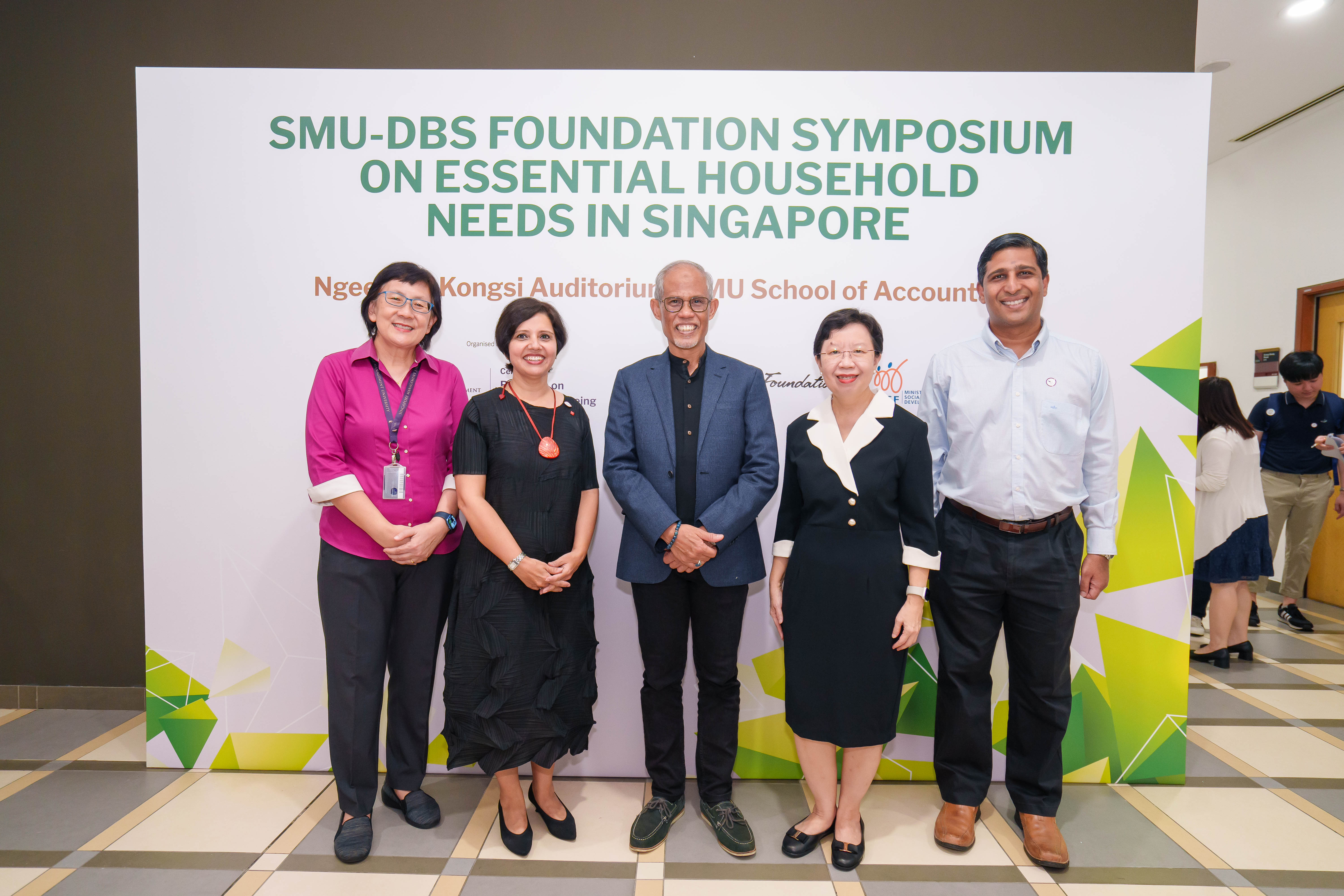 |
|
(left to right) Professor Paulin Straughan (Director, Centre for Research on Successful Ageing), Ms Monica Datta (Lead, Fostering Inclusion, at DBS Foundation), Mr Masagos Zulkifli (Minister for Social and Family Development), Professor Lily Kong (President, SMU), Dr Mathew Mathews (Head of Social Lab and Principal Research Fellow at the Institute of Policy Studies) |
The SMU-DBS Foundation Symposium on Essential Household Needs in Singapore took place on 12th July 2024 at the Singapore Management University (SMU) Ngee Ann Kongsi Auditorium. The symposium presented the findings of the “Household Needs Study (HNS)”, a study examining the ability of Singaporeans to afford what they deem as necessities and their general beliefs and attitudes towards reasons for poverty.
The symposium consisted of two segments. The first segment focused on understanding essential household needs in the Singaporean and Japanese context, and the second segment focused on the ways society can help those in need access essential items for normal living. Both segments featured presentations from academics, and an engaging panel discussion between these scholars, as well as personnels from the social service and corporate sectors.
In total, over 200 participants, which consisted of individuals from government agencies, social and corporate sectors and SMU students attended the symposium.
WELCOME ADDRESS
Professor Lily Kong, President of SMU
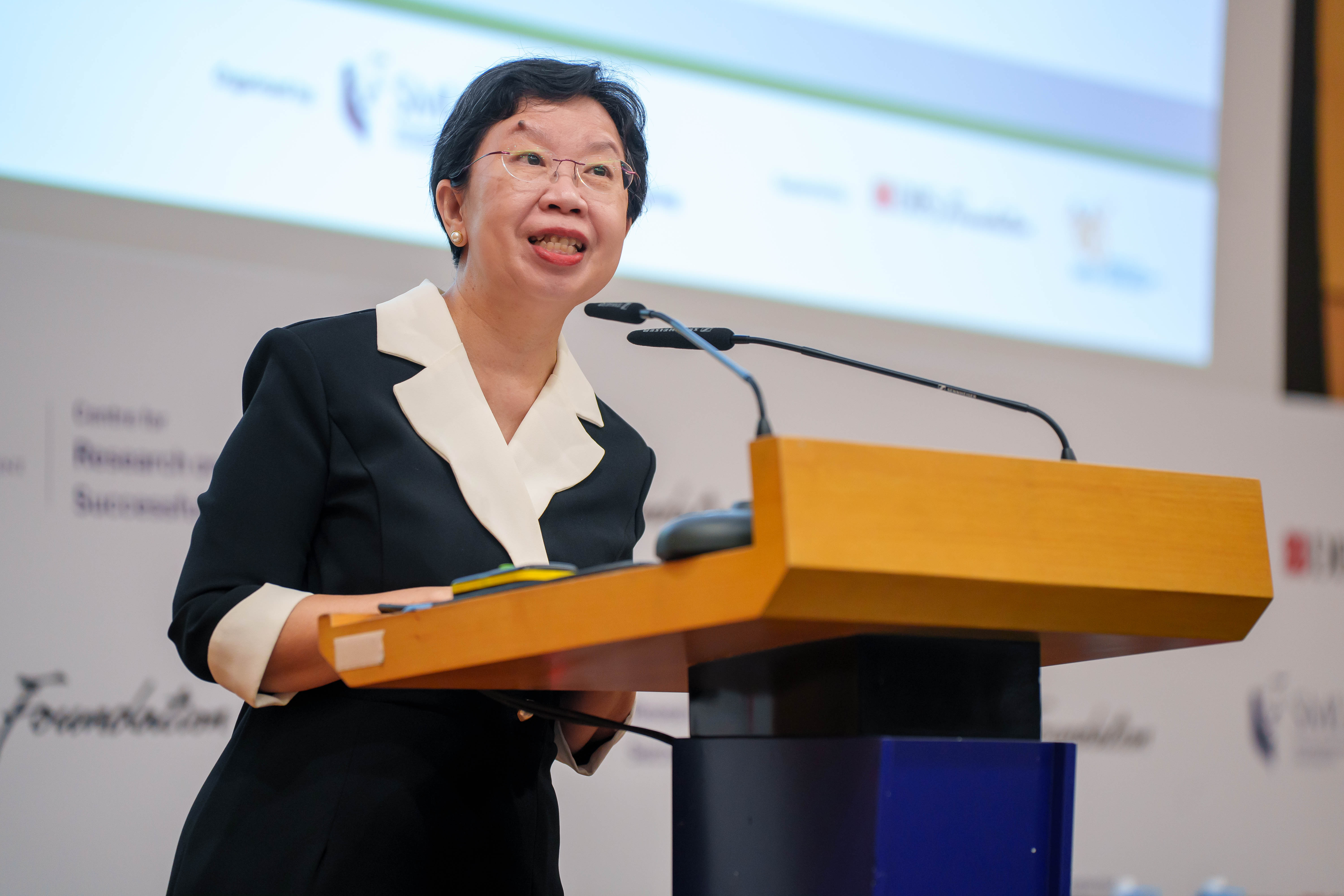 |
|
Professor Lily Kong giving her welcome address. |
Professor Lily Kong, President of SMU, opened the SMU-DBS Foundation Symposium on Essential Household Needs in Singapore with a welcome address acknowledging that the changes in Singapore’s demographics require the examination of solutions that can bridge the affordability gap of essential items and promote holistic well-being for Singaporeans.
KEYNOTE PRESENTATION
Professor Paulin Straughan, Director of ROSA
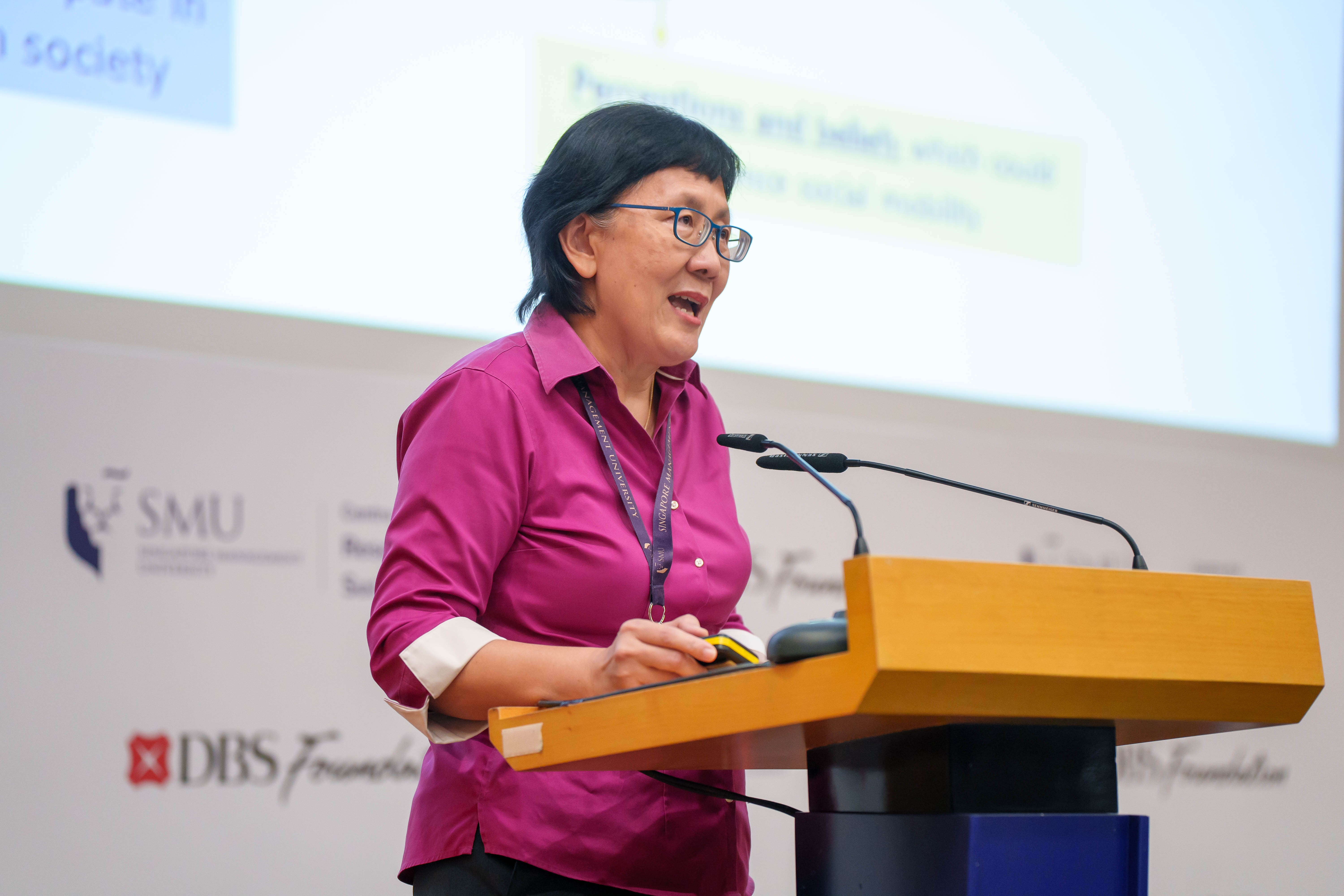 |
|
Professor Paulin Straughan giving the keynote presentation. |
Professor Paulin Straughan, Director of ROSA, delivered the opening keynote presentation where she shared the findings of the HNS, focusing on what items Singaporeans collectively deem as essentials for everyday life, and the demographics of individuals who do not have access to these essentials.
Some of the key findings from her presentation showed that:
- Although there was a high consensus among respondents that air-conditioning is a necessity, this was less so in lower-income respondents compared to higher-income respondents. This was because respondents generally understood that while air-conditioning provides an escape from the heat, electricity bills incurred from such usage will be high.
- Owning a television is considered by the HNS respondents to be more essential than paid streaming services. Respondents in the HNS focus group discussions explained that streaming services are expensive, but the TV remains an accessible essential for all, especially for older adults.
- An annual overseas vacation to a Southeast Asian country is considered crucial to most respondents, as it provides an escape from the dense population and geographically small environment of Singapore. Southeast Asian countries were more preferred to respondents than other countries as such destinations are closer to Singapore with a weaker exchange rate that allows them to afford more items during such vacations.
PRESENTATIONS, SEGMENT 1
1. Research Insights: Application of relative deprivation methodology in other contexts
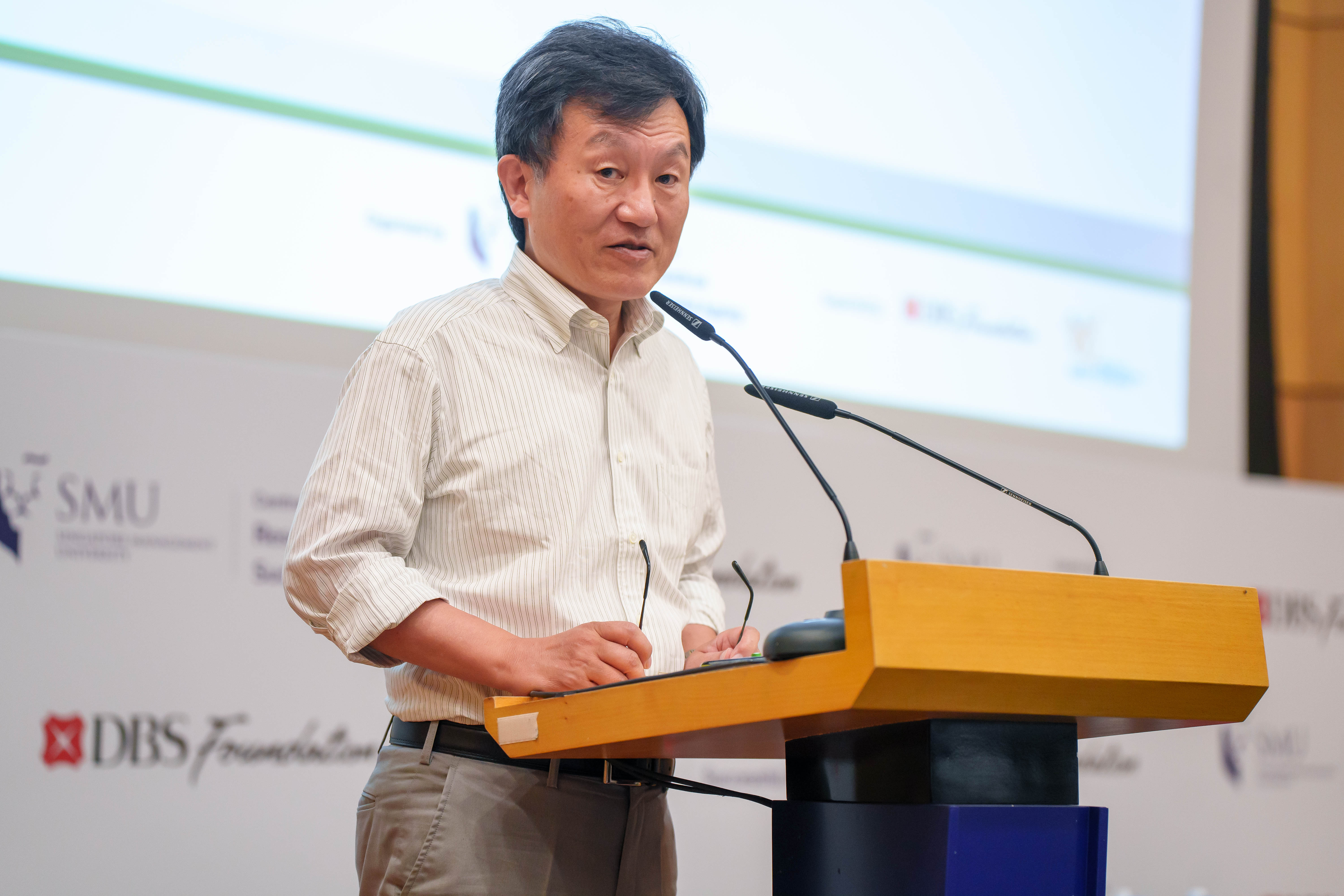 |
|
Professor Takashi Oshio giving his presentation. |
Following that, Professor Takashi Oshio from the Institute of Economic Research, Hitotsubashi University, delivered a presentation on the relationship between relative deprivation, poverty and mortality among older adults in Japan. He highlighted that relative deprivation, calculated using 13 items equating with lack of necessities, living environment and lack of social life, increases the chance of mortality. He also highlighted that in the Japanese context, having no private bathrooms and no ceremonial dresses, which limits one’s chances of attending ceremonial events, was correlated with increased mortality rates. He noted that such findings suggest that the measurement of relative deprivation and relative poverty may be valuable in measuring health outcomes.
2. Research Insights: Socially perceived necessities in Japan
Thereafter, Professor Aya Abe, Director of the Research Center for Child and Adolescent Poverty at the Tokyo Metropolitan University, delivered a virtual presentation on socially perceived necessities in Japan. She explained that while public assistance is necessary to ensure people maintain a standard of cultured and wholesome living, the Japanese Constitution does not provide an official legal definition of what is a minimally accepted standard of living. Hence, her study sought to look at how socially perceived necessities could be used to determine the minimally accepted standard of living in Japan.
Some of the key findings from her presentation were that:
- Support for essential items have changed over time. For instance, children's items like toys and clothes, and children’s own room gained support between 2003 and 2022, while items such as school day trips, books and milk have lost support during the same period.
- There is a loss of consensus on several essential items. For instance, ‘two pairs of shoes that fit’ is an item which has seen unanimous increase in support between 2003 and 2022, but there is decreasing consensus on items like separate bedrooms for boys and girls above 10 years old during the same period.
PANEL DISCUSSION: UNDERSTANDING ESSENTIAL NEEDS IN DIFFERENT CONTEXTS
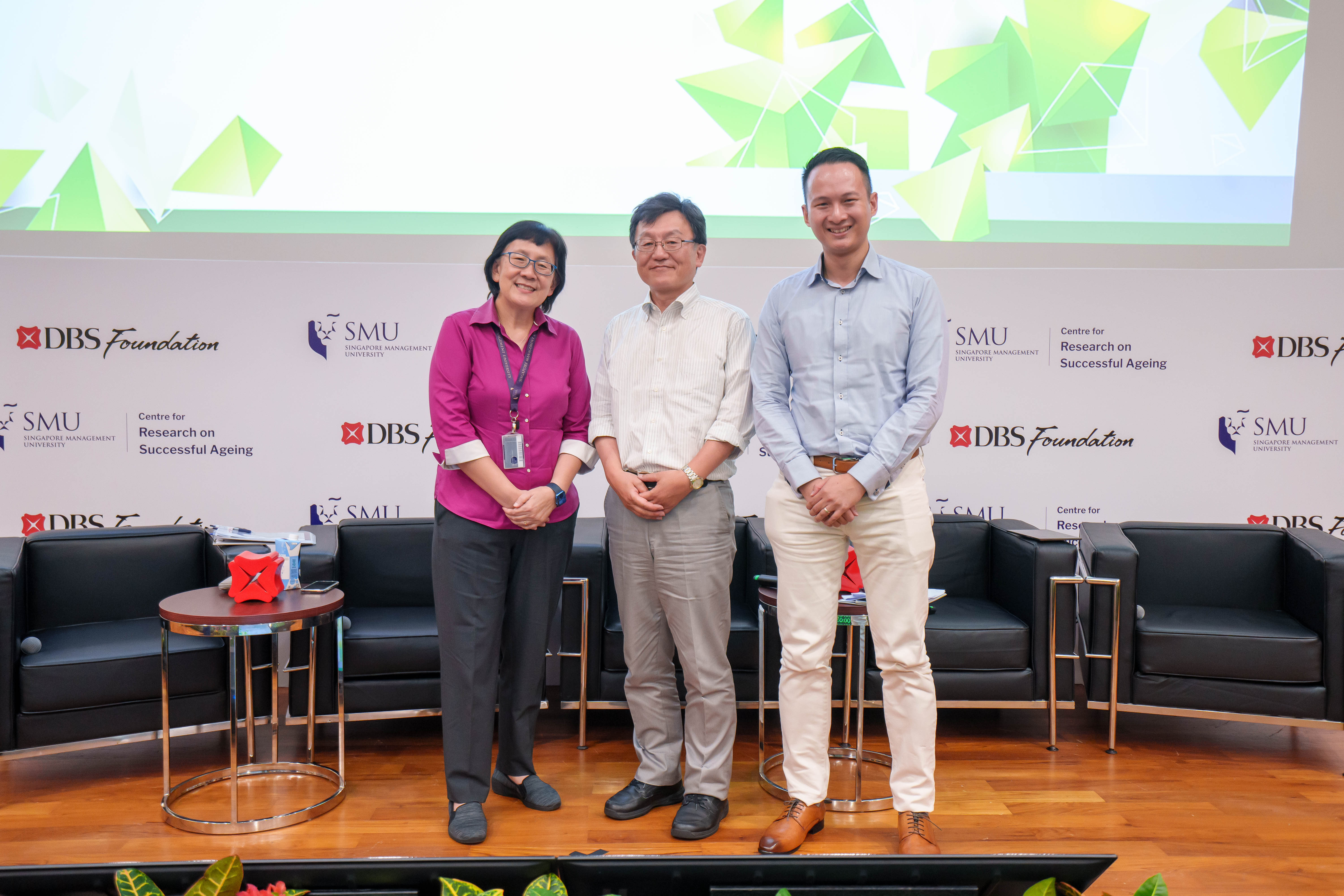 |
|
(left to right) Professor Paulin Straughan, Professor Takashi Oshio and Dr Nathan Peng |
The presentations were followed by a panel discussion between Professor Paulin Straughan, Professor Takashi Oshio, Professor Aya Abe and Assistant Professor Nathan Peng as moderator (Assistant Professor of Political Science (Education) at SMU). The panel discussion focused on the changing perceptions of what is considered essential in both Japanese and Singaporean contexts, and how each nation could reliably identify what is considered a necessity.
Some key points highlighted were that:
- While there is a consensus amongst the Japanese population on what is considered a necessity, there has been an increasing diversion of Japanese public opinion on this issue.
- There is some consistency amongst Singaporeans with the perception on what is essential, but this may change due to rapidly changing demographics in Singapore.
- As there are differences in how different groups perceives what is essential, utilising the approach of obtaining a majority opinion rather than relying on a consensus view could be adopted to determine what is considered necessary.
PRESENTATIONS, SEGMENT 2
3. Research Insights: Findings from survey of Singapore residents on who should provide for essential items for those in need
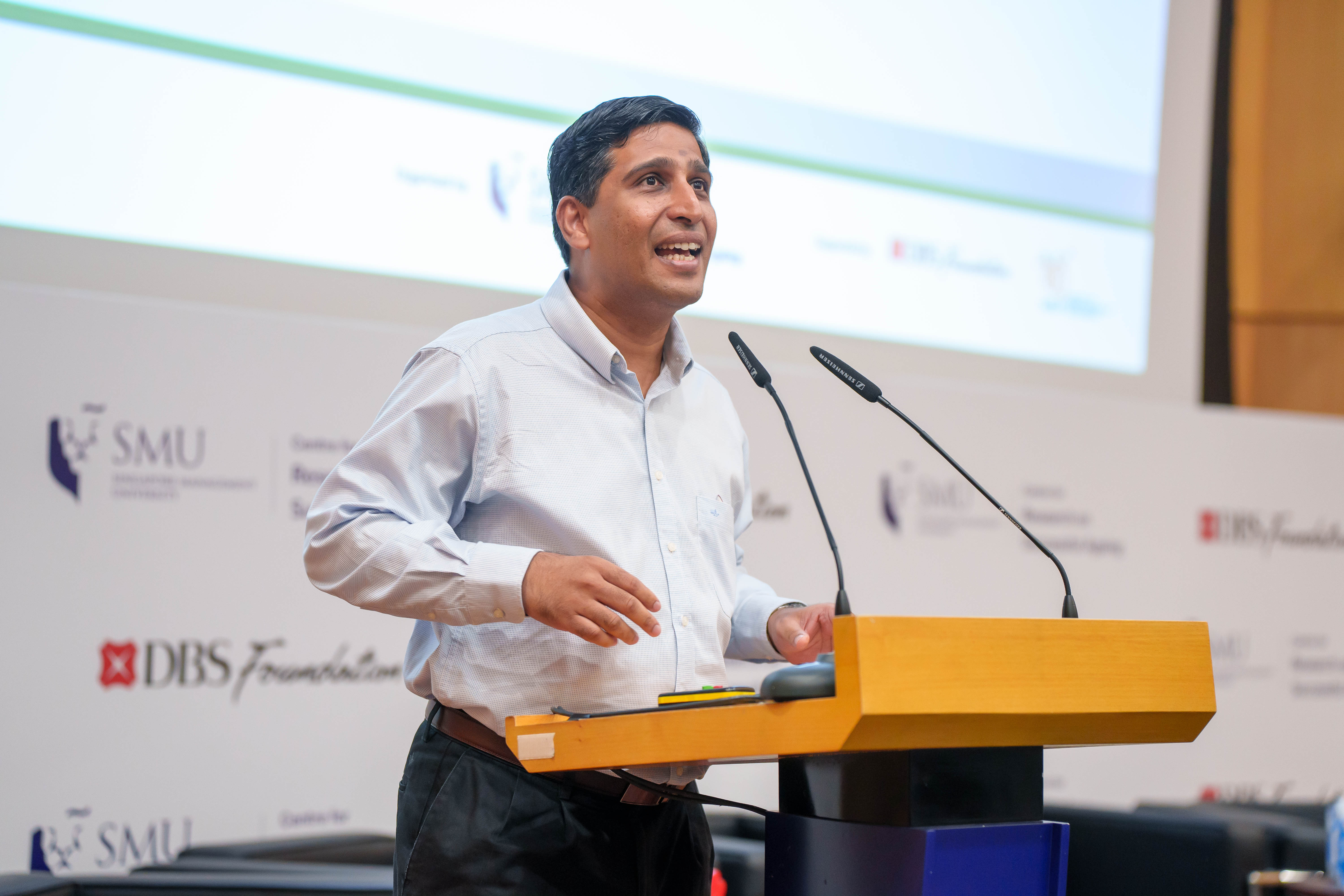 |
|
Dr Mathew Mathews giving his presentation. |
Dr Mathew Mathews, Head of Social Lab and Principal Research Fellow at the Institute of Policy Studies (IPS), kickstarted the second segment of the symposium with a presentation that shared findings from an opinion poll study that IPS conducted regarding the beliefs that individuals have regarding poverty. He also delved into how social service agencies (SSAs), Community Organisations and businesses could help the needy in Singapore.
Some of the key findings included that:
- Respondents tended to believe that the government should be the main party responsible for providing necessities, healthcare and childcare related items to citizens.
- Respondents felt that the community, including relatives and friends, should be responsible for providing meals, personal items and furniture such as chairs and tables.
- Younger respondents preferred the government to provide for more needs.
- Respondents felt that large corporations should do more to help lower-income individuals either through better employment practices or philanthropic activities.
PANEL DISCUSSION: HOW SOCIETY CAN COME TOGETHER TO HELP THOSE IN NEED ACCESS ESSENTIAL ITEMS FOR NORMAL LIVING
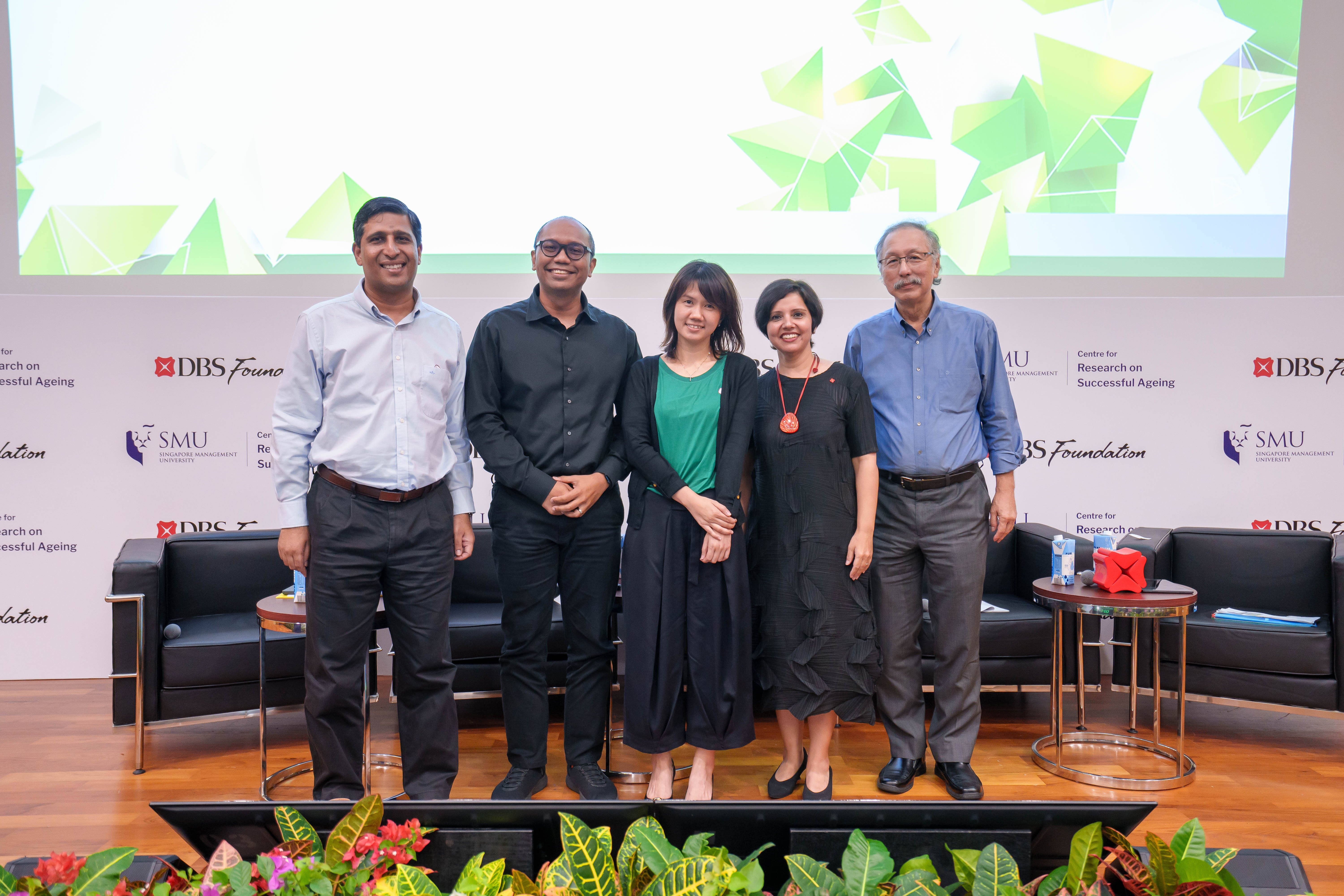 |
|
(left to right) Dr Mathew Mathews, Mr Mohamed Fareez, Ms Joyz Dunlin, Ms Monica Datta and Dr Tan Ern Ser |
The presentation was followed by a thoughtful panel discussion between Dr Mathew Mathews, Ms Monica Datta (Lead, Fostering Inclusion, at DBS Foundation), Ms Joyz Tan Dunlin (Director, Family & Counselling services division, Fei Yue Community centre) and Mr Mohamed Fareez (Divisional Director, Family & Community Support and Care & Integration, Allkin Singapore), that was moderated by Dr Tan Ern Ser (Adjunct Principal Research Fellow from the Institute of Policy Studies).
The discussion saw the audience raise questions and concerns on how various stakeholders in society, aside from the government, can contribute to meeting the needs of those who are deprived.
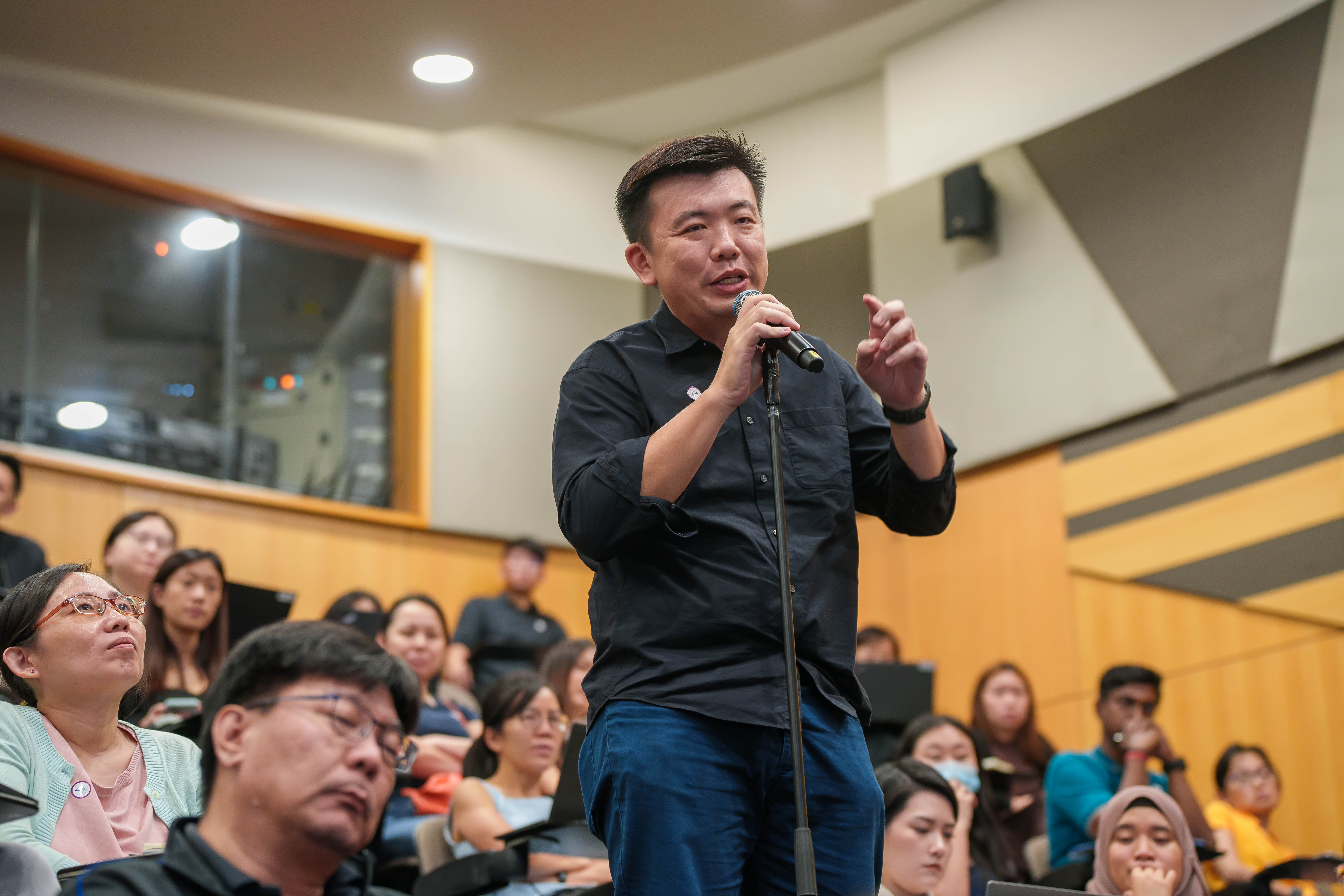 |
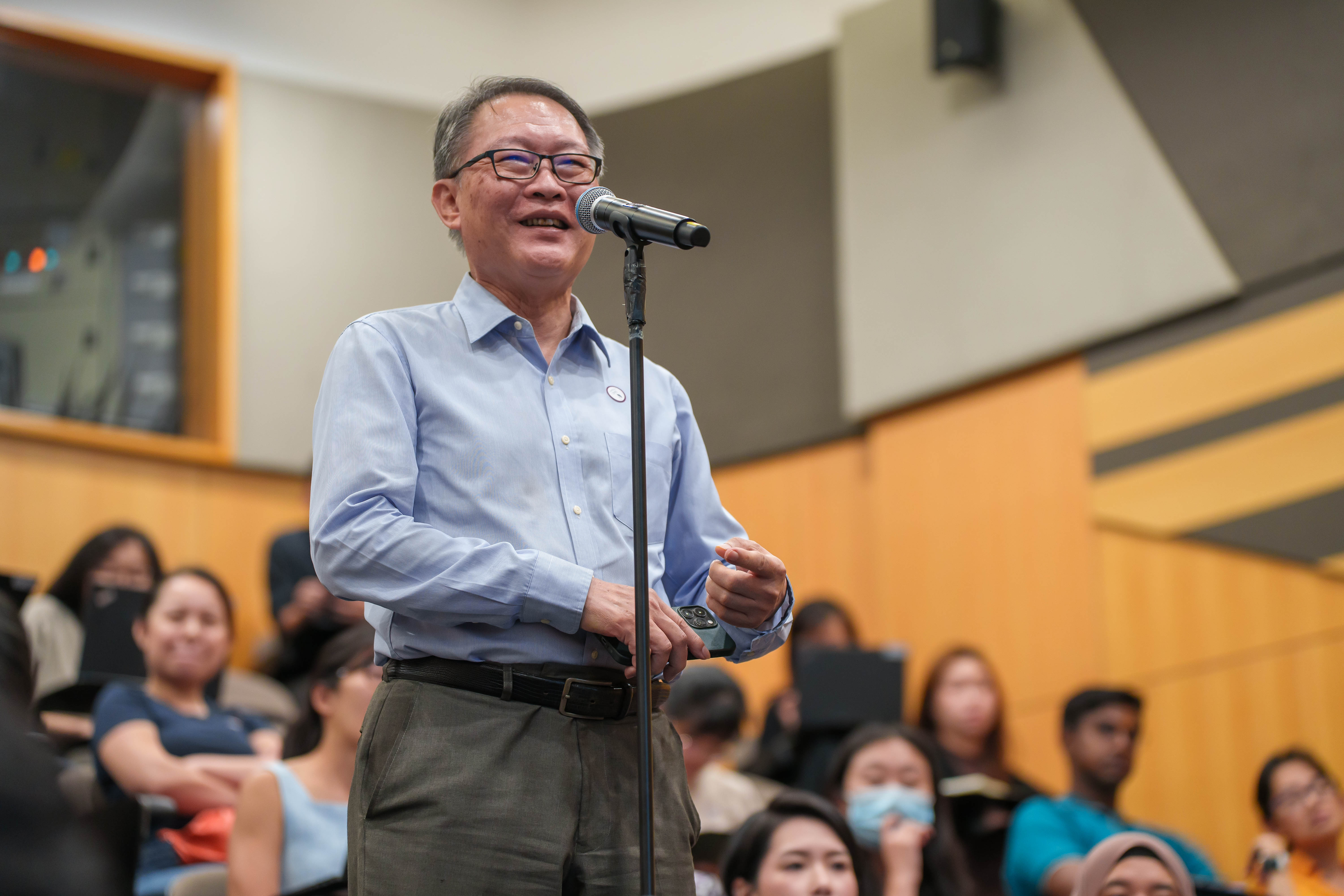 |
Members of audience posing questions to the panel.
Some key points raised during the discussion include:
- There is a need to cultivate a sense of empowerment amongst the needy by equipping them with what they need for the future, such as providing funding for families and getting employees to teach financial literacy them.
- Organisations and government agencies should meet individual needs based on objective measures with subjective consideration to the circumstances of each individual cases.
- Companies should be more socially responsible and contribute back to their respective communities to help the less fortunate, as they have the necessary resources to do so.
- Stigma surrounding individuals living in poverty are making people reluctant to extend a helping hand to such individuals. Hence, society should learn to view poverty, as well as those in poverty, in a less negative and stigmatising light.
CLOSING REMARKS BY GUEST OF HONOUR
Mr Masagos Zulkifli, Minister for Social and Family Development
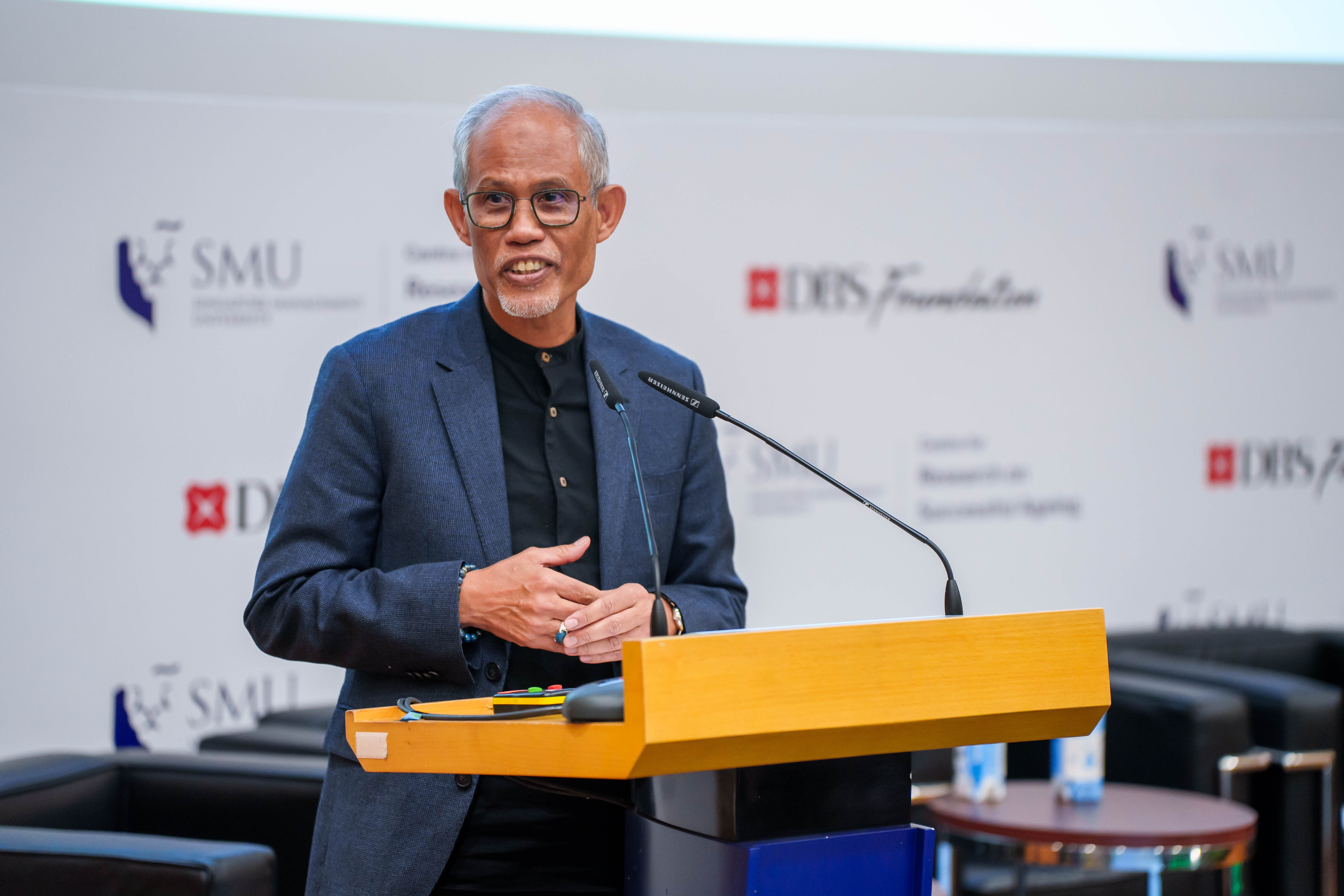 |
|
Minister Masagos Zulkifli giving his closing remarks. |
To conclude the SMU-DBS Foundation Symposium on Essential Household Needs in Singapore, Mr Masagos Zulkifli, Minister for Social and Family Development, offered a few closing remarks. He referred to this symposium as an example of how academics can work with the government to continuously improve social services in Singapore and highlighted the role each stakeholder in society plays in ensuring that no Singaporean gets left behind. You may access his full speech here.
CONCLUSION
The ROSA team would like to extend our heartfelt gratitude to our Guest of Honour, Minister Masagos Zulkifli for gracing our event, Professor Kong, President of SMU, for her support of ROSA’s work and for delivering the welcome address, our esteemed panellists, and to all of our fellow colleagues, students, and guests who contributed meaningfully to the discussions.
You may view the highlights of the event here.